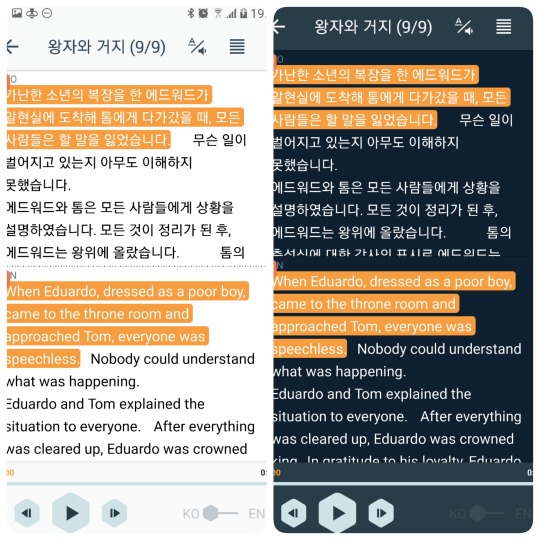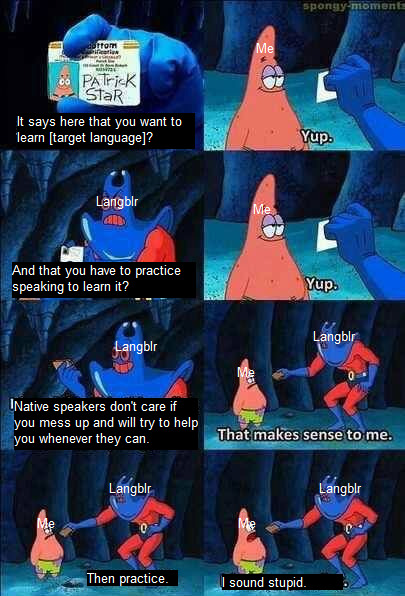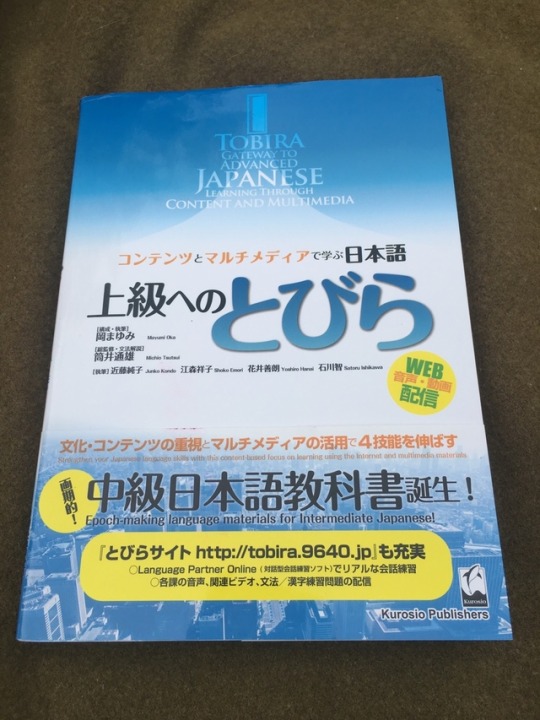Text
Japanese lesson 61
Today's theme is "Basically".
今日はテーマは「基本的に/要するに」です。
(きょうのてーまは きほんてきに ようするに です)
1. Basically, I work on Tuesday.
基本的に私は火曜日に働いています。
(きほんてきに わたしは かようびに はたらいています)
2. Basically, I agree with you.
基本的にはあなたに賛成です。
(きほんてきには あなたに さんせいです)
A: I like action movies, dramas, horror.
僕はアクション映画、ドラマ、ホラーが好き。
(ぼくは あくしょんえいが どらま ほらーがすき)
B: Basically, you like watching movies, don't you?
要するにあなたは映画を見るのが好きなんですね。
(ようするに あなたは えいがを みるのが すきなんですね)
You should use it!
See you again!!
Have a nice weekend!!!
103 notes
·
View notes
Text
In Japanese we don’t say “I’m just going to stay home tonight” we say “今夜は家でゴロゴロしてる (konya wa ie de gorogoro shiteru)” meaning “Tonight I’m just going to roll around at home” and … #same
Submitted by anonymous
5K notes
·
View notes
Text
Using 感じ to express your feelings in Japanese
A lot of people seem to think that expressing your feelings in Japanese is difficult, and while it can be, there are a lot of different variations used in Japanese to express feelings. I promise it isn’t that bad!
First, let’s start with some vocabulary:
喜怒哀楽
きどあいらく = human emotions (joy, anger, humor, etc)
Common Nouns: In Japanese, い-adjectives can often become nouns (高い = tall, 高さ = height). Be careful not to use adjectives on accident when you should use nouns!
気持ち(きもち)feeling(s)
気分(きぶん)feeling(s)/mood
感情(かんじょう)emotions
喜び(よろこび)delight
幸せ(しあわせ)happiness
怒り(いかり)anger
悲しみ(かなしみ)sadness
Common Verbs: Similarly, a lot of adjectives/nouns and verbs share the same stems, but will have different endings. Be careful!
喜ぶ(よろこぶ)to be delighted
悲しむ(かなしむ)to be sad
怒る(おこる)to be/get angry
激怒する(げきどする)to be furious
憤慨する(ふんがいする)to be furious
You’ll commonly see these verbs appear in て-form in order to describe a present state, such as 怒っている (to be in a state of anger) or 喜んでいる (to be in a state of delight).
Common Adjectives:
嬉しい(うれしい)happy
悲しい(かなしい)sad
楽しい(たのしい)fun
辛い(つらい)hard/tough/painful
きつい hard/tough
凄い(すごい)wow, great
やばい expresses various things
When describing your own happiness, it’s more natural to use 嬉しい and not 喜んでいる. However, when describing someone else’s happiness, you should use 喜んでいる and not 嬉しい.
辛い(辛い)and 辛い(からい)look the exact same, but one means “tough” and the other means “spicy.” Pay attention to context!
Expressing your emotions
When describing your own emotions, it’s actually quite uncommon to use any first person pronouns (such as 私) unless the subject is not at all clear. Likely, though, the subject is you and the listener knows this.
Joy & Happiness
あ〜、嬉しいな!ー I’m happy!
な is often used in Japanese when expressing your feelings
あ, ああ, and あー are also often used
やった〜!ー Yay!
イェーイ!ー Yaaay!
楽しい!ー Fun!
楽しすぎる ー Using すぎる can express the nuance of “too much fun”
ワクワクする ー I’m getting excited!
It’s common in Japanese to use onomatopoeia to express emotion!
すごい!ー Wow! Great!
This is commonly used in variations (すご〜い!すげえ!and so on)
Relief & Surprise
あ〜、よかった!ー I’m relieved!
安心した(あんしん)ー I feel relieved.
え〜!ー What?
うそ!ー No way!
まさか ー No way! It can’t be true.
まじ ー Really? No way! Seriously?
まじか ー Really? No way! Seriously?
This one is sometimes seen as more masculine
信じられない ー I can’t believe it
Nervousness & Sadness
緊張する(きんちょう)ー I’m nervous…
Really common, and can also be used in its て-form!
ドキドキする ー I feel nervous.
悲しい(かなしい)ー I’m sad.
寂しい(さみしい・さびしい)ー I’m lonely / I miss someone
憂鬱(ゆううつ)ー Depression
気が滅入る(きがめいる)ー I feel depressed
がっかり ー I’m disappointed
落ち込む(おちこむ)ー I’m getting upset!
Anger
ひどい!ー That’s terrible! You’re awful!
イライラする ー I feel irritated
頭にきた ー I’m so pissed off
ムカつく ー I’m angry
Embarrassment: 恥ずかしい(はずかしい)ー I’m embarrassed.
Fear: 怖い(こわい)ー I’m scared.
Envy: 羨ましい(うらやましい)ー I’m jealous.
Using 感じ and 感じる
If you talk to a Japanese person for any length of time, you’ll hear this come up quite often. The readings are “かんじ” and “かんじる”. Remember that the meaning of 感 is “feeling,” so if you see it in kanji compounds you’re likely dealing with someone to do with feeling (emotion or otherwise).
感じ is the noun form and 感じる is the verb form:
どんな感じがしましたか?How did you feel?
どんな感じましたか?How did you feel?
These feelings can be both physical and emotional.
変な感じがした…
へんなかんじがした…
I felt strange…
彼女はなんか冷たい感じがするね。
かのじょはなんかつめたいかんじがするね。
She seems to be kind of cold, huh?
地震があったみたいだけど何も感じなかった。
じしんがあったみたいだけどなにもかんじなかった。
It seems there was an earthquake but I didn’t feel anything.
There are a lot of colloquial uses as well, particularly: って感じ, which is a really common way for Japanese to express the feeling of “it’s like…”
学校はね…もういいかなって感じ。
I think I’ve had enough with school.
私ばかり働いているって感じ。
I feel like I’m the only one that works.
You can use って感じ in a lot of ways, and it’s especially common when speaking.
気がする
Use this when expressing that you sense something/feel something but can’t quite understand why you feel that way.
If you’re breaking up with your significant other, you might say something like 私たち、もう終わりのような気がする which roughly translates to “I feel like we’re over now.”
面白いことが起きるみたいな気がする…
おもしろいことがおきるみたいなきがする…
I feel like something interesting will happen…
旅行したい気がする。
りょこうしたいきがする。
I feel like going on a trip.
食べる気がしない。
たべるきがしない。
I don’t feel like eating.
Try to express your emotions as much as possible when talking to people, especially if you’re talking about your day or something that you did with that person. It adds a personal touch and will make sure your conversation remains warm for both of you.
頑張ってください!
5K notes
·
View notes
Text
Language learning and langblr tips from me
What to learn first when learning a new language
How to stay motivated when learning languages
How to learn a language with a different script
How to learn kanji
Vocabulary list topics
How to make vocabulary lists
How to expand your vocabulary
How to learn vocabulary and verb endings
How to improve your listening skills
How to practice speaking your target language
How to go from intermediate to advanced in your target language
How to learn two (or more) languages at once
How to learn all the languages you want
How to avoid mixing up languages
How to study languages with depression
How to practice speaking when you have social anxiety
How to study with a language exchange partner and what to talk about with them
How to study with Duolingo
How to make a language notebook
How to divide your language notebook/what to write in your language notebook
How to use bullet journal in language learning
How to find native speakers to practice with
How to know what level you are in your languages
How to start a langblr
11K notes
·
View notes
Text
Literature Vocabulary in Japanese

Some literature-related words in Japanese! Check out my post on Japanese literature if you want a way to apply your newly-acquired vocab 〜
文学・ぶんがく・literature
本・ほん・book
書店・しょてん・bookstore (or 本屋・ほんや)
図書館・としょかん・library
読む・よむ・read
書く・かく・write
作家・さっか・author, writer
翻訳・ほんやく・translation
翻訳家・ほんやくか・translator
人物・じんぶつ・character
主人公・しゅじんこう・protagonist
悪役・あくやく・villain
アンチヒーロー・antihero
章・しょう・chapter
対話・たいわ・dialogue
名状・めいじょう・description
隠喩・いんゆ・metaphor
サスペンス・suspense
文体・ぶんたい・style
散文・さんぶん・prose
韻文・いんぶん・verse
近代的・きんだいてき・modern
ポストモダン・postmodern
実験的・じっけんてき・experimental
ジャンル・genres
ホラー・horror
ファンタジー・fantasy
SF・エスエフ・science fiction
推理・すいり・mystery
ハードボイルド・hardboiled
恋愛小説・れんあいしょうせつ・romance novel
文学的・ぶんがくてき・literary
悲劇・ひげき・tragedy
喜劇・きげき・comedy
フィックション・fiction
ノンフィクション・nonfiction
回想記・かいそうき・memoir
教養小説・きょうようしょうせつ・bildungsroman
小説・しょうせつ・novel
短編小説・たんぺんしょうせつ・short story
戯曲・ぎきょく・play
神話・しんわ・myth
大作・たいさく・epic
テーマ・themes
愛・あい・love
死亡・しぼう・death, mortality
精神性・せいしんせい・spirituality
生活・せいかつ・life
痛み・いたみ・pain
感動・かんどう・passion
万全・ばんぜん・perfection
美・び・beauty
権力・けんりょく・power
性的・せいてき・gender
自然・しぜん・nature
モダニズム・modernism
民族主義・みんぞくしゅぎ・nationalism
戦争・せんそう・war
647 notes
·
View notes
Text
今日一番好きなバンドは新曲を発売したが、アメリカでは聞けないよ 😭😭 待たなきゃいけないかな
2 notes
·
View notes
Text
[App Review]—Beelinguapp
Is this more of an app review or a book review? Today I bring you a review of Beelinguapp, an audiobooks app for language learners.

Sometimes studying can be a boring drag and you just want to do something a little less tedious than drilling grammar or a ton of vocab flashcards. Maybe you want to get into reading books in your language of choice, but you’re worried that it might be too hard to just pick up a book written in your chosen language and read it without guidance. In that case, I could recommend this app to you!

As I already said, this is an audiobook app. There are free stories and paid ones both available to choose from. There are stories of all different types and difficulties, including classics and even sciency stuff, as you can see in the above image! The cool thing is that when you choose a story, you can also choose which languages to download it in! So far, I’ve downloaded all of my stories in English, Korean, Mandarin, and Japanese. When you go to listen to a story, you can choose what you want your learning language to be and what your reference language is. When you listen to the book, it will be read and displayed to you in the learning language, and you can do split screen so the learning language is on top and the reference language is on bottom. You can mix and match languages, so you could even have two learning languages up at once!
There are a lot of things you can play with as you read. As I already mentioned, there’s the split screen option, and there is a night mode, text magnifier, voice speed control, and text highlight that follows the reader. The text highlight sometimes isn’t timed correctly, however, and of course if the languages you have set as your learning and reference have different word order or other major grammatical differences, you won’t be able to really use the highlight to, for example, match words you don’t know. Still, the highlight does make it easier to follow where the speaker is in the text with your eyes even if the timing is a little off.

As for the actual audio quality, I’ve found it to be passable in all the stories and different languages I’ve tested so far, though some aren’t the absolute best quality. That isn’t to say the audio is bad, just that you can expect to hear some noise in some recordings. I’m assuming that the audio quality will be better with stories that you have to pay to download, but I’m too cheap so I haven’t tried any of those yet :B Anyway, in all of the stories I’ve listened to so far, the narrators speak at reasonable storytelling speeds, and if you aren’t super picky about audio quality, there should be no big problem.
The major downfall of this app is, in my opinion, the lack of a dictionary function. You can long-press words to add them to your own dictionary in the app… but then you have to add a meaning for the word yourself, which is obviously not too helpful at all if you don’t already know what the word means! Sure, maybe you could take a look at the reference language text to see what the word means, but these stories aren’t translated word-for-word and sometimes matching up words between different versions of the same text could be hard. What I think this app really needs is an easy-access dictionary that, if you long-press a word, it pulls up a dictionary entry for that word. Of course, since there are so many stories in so many languages on this app, providing dictionaries for all of them might be hard…
Verdict:
Ultimately, I think this is a pretty good app with a few flaws that, if fixed, would make this a really excellent language-learning tool!
PROS:
Multiple languages available
Can read along as you listen to the story
Can choose your display languages so you can even study more than one new language at once
Lots of little options to play with to optimize your experience
CONS:
No integrated dictionary :<
Audio quality is decent but a little lacking
Text highlighting sometimes isn’t synced properly
As always, happy studying <3
7K notes
·
View notes
Text
Using 感じ to express your feelings in Japanese
A lot of people seem to think that expressing your feelings in Japanese is difficult, and while it can be, there are a lot of different variations used in Japanese to express feelings. I promise it isn’t that bad!
First, let’s start with some vocabulary:
喜怒哀楽
きどあいらく = human emotions (joy, anger, humor, etc)
Common Nouns: In Japanese, い-adjectives can often become nouns (高い = tall, 高さ = height). Be careful not to use adjectives on accident when you should use nouns!
気持ち(きもち)feeling(s)
気分(きぶん)feeling(s)/mood
感情(かんじょう)emotions
喜び(よろこび)delight
幸せ(しあわせ)happiness
怒り(いかり)anger
悲しみ(かなしみ)sadness
Common Verbs: Similarly, a lot of adjectives/nouns and verbs share the same stems, but will have different endings. Be careful!
喜ぶ(よろこぶ)to be delighted
悲しむ(かなしむ)to be sad
怒る(おこる)to be/get angry
激怒する(げきどする)to be furious
憤慨する(ふんがいする)to be furious
You’ll commonly see these verbs appear in て-form in order to describe a present state, such as 怒っている (to be in a state of anger) or 喜んでいる (to be in a state of delight).
Common Adjectives:
嬉しい(うれしい)happy
悲しい(かなしい)sad
楽しい(たのしい)fun
辛い(つらい)hard/tough/painful
きつい hard/tough
凄い(すごい)wow, great
やばい expresses various things
When describing your own happiness, it’s more natural to use 嬉しい and not 喜んでいる. However, when describing someone else’s happiness, you should use 喜んでいる and not 嬉しい.
辛い(辛い)and 辛い(からい)look the exact same, but one means “tough” and the other means “spicy.” Pay attention to context!
Expressing your emotions
When describing your own emotions, it’s actually quite uncommon to use any first person pronouns (such as 私) unless the subject is not at all clear. Likely, though, the subject is you and the listener knows this.
Joy & Happiness
あ〜、嬉しいな!ー I’m happy!
な is often used in Japanese when expressing your feelings
あ, ああ, and あー are also often used
やった〜!ー Yay!
イェーイ!ー Yaaay!
楽しい!ー Fun!
楽しすぎる ー Using すぎる can express the nuance of “too much fun”
ワクワクする ー I’m getting excited!
It’s common in Japanese to use onomatopoeia to express emotion!
すごい!ー Wow! Great!
This is commonly used in variations (すご〜い!すげえ!and so on)
Relief & Surprise
あ〜、よかった!ー I’m relieved!
安心した(あんしん)ー I feel relieved.
え〜!ー What?
うそ!ー No way!
まさか ー No way! It can’t be true.
まじ ー Really? No way! Seriously?
まじか ー Really? No way! Seriously?
This one is sometimes seen as more masculine
信じられない ー I can’t believe it
Nervousness & Sadness
緊張する(きんちょう)ー I’m nervous…
Really common, and can also be used in its て-form!
ドキドキする ー I feel nervous.
悲しい(かなしい)ー I’m sad.
寂しい(さみしい・さびしい)ー I’m lonely / I miss someone
憂鬱(ゆううつ)ー Depression
気が滅入る(きがめいる)ー I feel depressed
がっかり ー I’m disappointed
落ち込む(おちこむ)ー I’m getting upset!
Anger
ひどい!ー That’s terrible! You’re awful!
イライラする ー I feel irritated
頭にきた ー I’m so pissed off
ムカつく ー I’m angry
Embarrassment: 恥ずかしい(はずかしい)ー I’m embarrassed.
Fear: 怖い(こわい)ー I’m scared.
Envy: 羨ましい(うらやましい)ー I’m jealous.
Using 感じ and 感じる
If you talk to a Japanese person for any length of time, you’ll hear this come up quite often. The readings are “かんじ” and “かんじる”. Remember that the meaning of 感 is “feeling,” so if you see it in kanji compounds you’re likely dealing with someone to do with feeling (emotion or otherwise).
感じ is the noun form and 感じる is the verb form:
どんな感じがしましたか?How did you feel?
どんな感じましたか?How did you feel?
These feelings can be both physical and emotional.
変な感じがした…
へんなかんじがした…
I felt strange…
彼女はなんか冷たい感じがするね。
かのじょはなんかつめたいかんじがするね。
She seems to be kind of cold, huh?
地震があったみたいだけど何も感じなかった。
じしんがあったみたいだけどなにもかんじなかった。
It seems there was an earthquake but I didn’t feel anything.
There are a lot of colloquial uses as well, particularly: って感じ, which is a really common way for Japanese to express the feeling of “it’s like…”
学校はね…もういいかなって感じ。
I think I’ve had enough with school.
私ばかり働いているって感じ。
I feel like I’m the only one that works.
You can use って感じ in a lot of ways, and it’s especially common when speaking.
気がする
Use this when expressing that you sense something/feel something but can’t quite understand why you feel that way.
If you’re breaking up with your significant other, you might say something like 私たち、もう終わりのような気がする which roughly translates to “I feel like we’re over now.”
面白いことが起きるみたいな気がする…
おもしろいことがおきるみたいなきがする…
I feel like something interesting will happen…
旅行したい気がする。
りょこうしたいきがする。
I feel like going on a trip.
食べる気がしない。
たべるきがしない。
I don’t feel like eating.
Try to express your emotions as much as possible when talking to people, especially if you’re talking about your day or something that you did with that person. It adds a personal touch and will make sure your conversation remains warm for both of you.
頑張ってください!
5K notes
·
View notes
Photo

Is this just me or…?
4K notes
·
View notes
Text

I just finished my phonology paper so now that I’m done with sophomore year it’s time to start going through Tobira!
#ive been waiting to do this for like two weeks and shouldnt be as excited as i am lol#if anyone has any tips for me about self studying theyre very welcome#japanese#langblr
6 notes
·
View notes
Text
こんにちは!
I figured I should make a short introduction. My name’s Maddie and I’m finishing up my 2nd year of college right now. I’m majoring in psychology and linguistics!
I decided to make a langblr because I wanted to keep up with Japanese over the summer and to have a place to keep all the resources I find. I’ve been studying Japanese for two years now and I’m going to be studying abroad in Tokyo for a month in July! I’m also planning on studying abroad there next spring as well.
If you’re also a Japanese langblr like this post and I’ll check out your blog, I want to follow more people
23 notes
·
View notes
Text

N5 - N1 need to know
This website has documents, audio files, and other resources set up by N level. Happy studies!
159 notes
·
View notes








